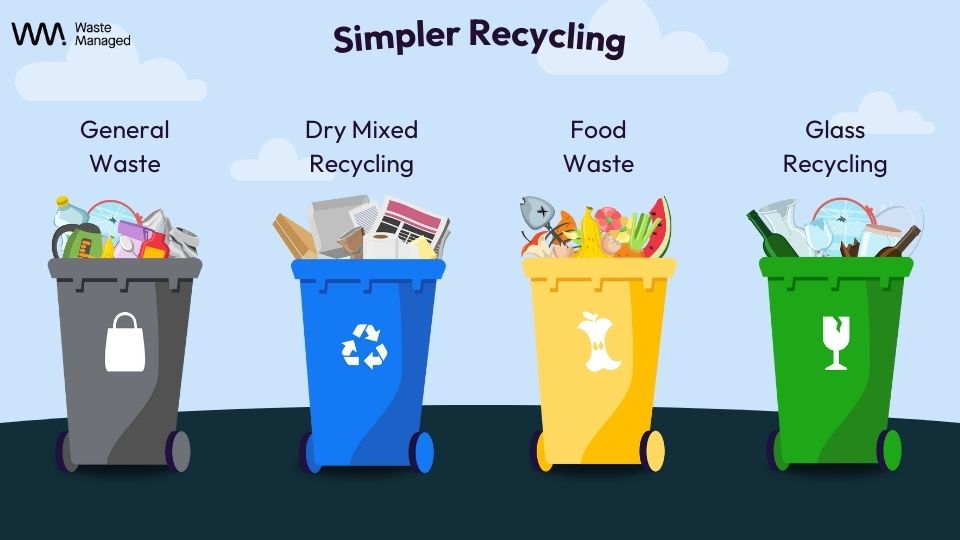
Getting a waste management license can be a real hassle, especially if you’re a new business owner trying to juggle a million other things.
Who has time to wade through all the legal jargon and constantly changing regulations?
Even if you’re a seasoned pro, staying on top of the latest updates can feel like a full-time job.
One change and suddenly, you’re at risk of being non-compliant without even realising it.
But don’t stress—we’ve got you covered!
We’ve put together an easy-to-follow guide to help you navigate the essentials.
Whether you’re just starting or need a quick refresher, this guide will help you manage your waste safely and legally.
Am I exempt from obtaining a waste management license?
Businesses must obtain an environmental permit if they are regularly handling commercial waste as part of their day-to-day activities.
We advise checking if you meet the criteria if you are:
- Using waste
- Disposing of waste
- Treating waste
- Storing waste (outside of regular wheelie bins)
You may be exempt from obtaining an RPS permit if you meet certain requirements.
This will depend on the type of waste, the method of disposal or recycling, quantity of waste and length of storage time.
If you are exempt from the waste management license you will not have to register again for another 3 years.
You may be required to obtain a waste management license if you are carrying out the final disposal of waste, treating waste or carrying out the recycling process.
Even if you are using mobile waste processing machinery such as an incinerator you may still need to comply with waste management permits.
Businesses that only store the waste for collection to be disposed of by a professional service provider are unlikely to need a license.
We advise checking that anyone who handles your refuse has proper documentation as you are still legally responsible for the waste until it reaches the landfill or processing site.
Fees and charges for a waste management license
Typically, an Upper-Tier waste management license can cost £154, but these charges vary depending on your region and specific circumstances.
Lower-Tier, as previously mentioned, is often free unless the type of waste or method of disposal is considered harmful to the environment.
Go here for more guidance about charges.
Check if you need a standard rules or a bespoke waste management permit
We advise applying or a standard permit if you meet the criteria and are able to comply with these rules, as it is the quicker option of the two.
Otherwise, you will have to apply for a bespoke waste management license.
You should be able to operate within a standard permit if your business isn’t located near a nature reserve, SSSI (site of special scientific interest) or if you won’t be handling hazardous materials.
You may need to provide plans for risk assessments, site plans and drainage plans for your site as part of your application.
A complete list of requirements for a standard permit can be found on the Environmental Agency’s site.
How long will it take to receive my permit?
Before you get started on the application, you must first assess the site against the risk assessment form.
In addition, you would need to be able to demonstrate your competence – this would include showing evidence of any technical qualifications.
The Waste Management Industry Training and Advisory Board provide recognised training courses.
Permits can be issued within 3 weeks.
However, considering the multiple factors that can affect your application we advise allowing more time to account for any unforeseen complications.








